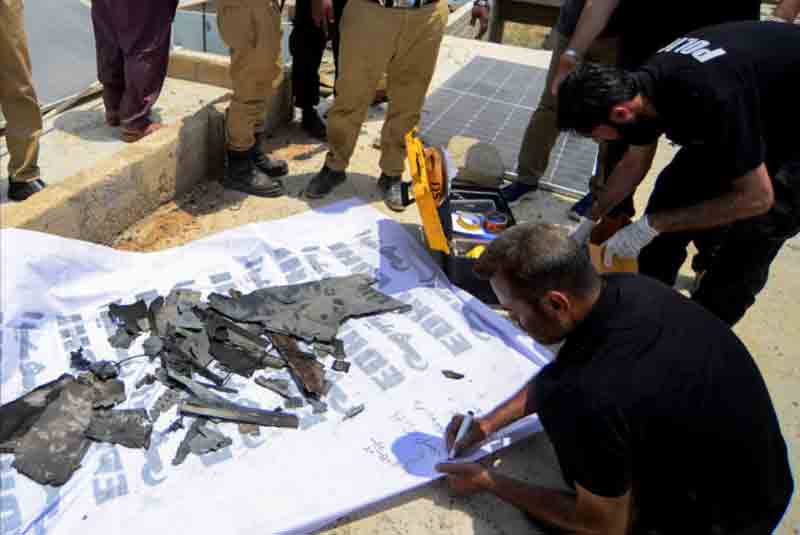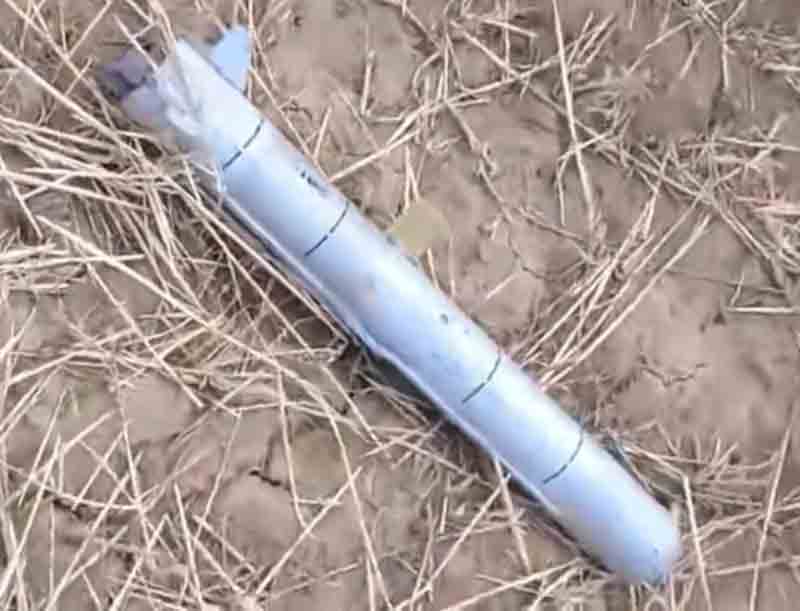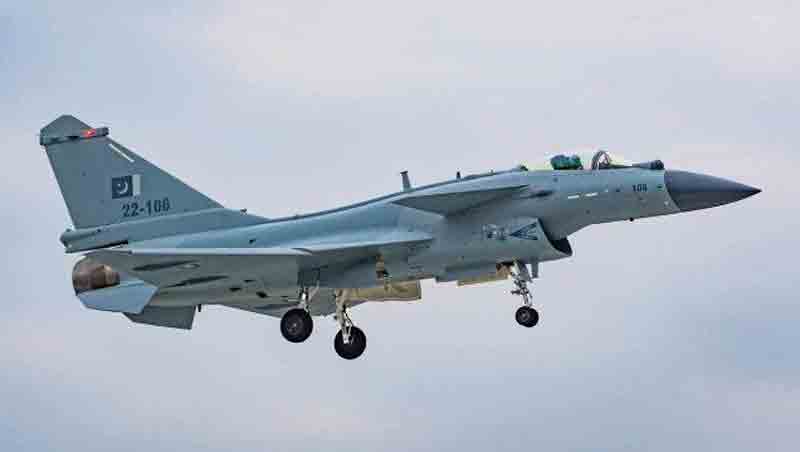On Thursday, Pakistan and India exchanged accusations regarding drone strikes, with Islamabad’s Defence Minister warning that further retaliation is becoming increasingly likely amid escalating clashes between the two nuclear-armed nations.
Pakistan claimed to have intercepted 25 Indian drones, while India asserted that its air defenses thwarted Pakistani drone and missile assaults on military installations, undermining hopes for a resolution to their most severe conflict in over twenty years.
Global powers, including the U.S., Russia, and China, have urged for de-escalation in this highly volatile and densely populated nuclear flashpoint. The U.S. Consulate General in Lahore, Pakistan, has instructed its personnel to remain sheltered.
These developments followed India’s announcement of strikes on nine sites in Pakistan, which it claimed were in retaliation for a deadly attack in Indian Kashmir on April 22, allegedly backed by Islamabad. Pakistan denied involvement and refuted India’s claims that the targeted sites were militant bases, asserting that it downed five Indian aircraft on Wednesday, a claim dismissed as misinformation by the Indian embassy in Beijing.
Defence Minister Khawaja Muhammad Asif indicated to Reuters that Pakistani retaliation is becoming increasingly likely, stating, I will still refrain from saying it is 100%. But the situation has become very difficult. We have to respond.
The relationship between India and Pakistan has been marked by tension since their independence from British colonial rule in 1947, having fought three wars, two of which were over Kashmir, and experienced numerous clashes. Both nations, which claim Kashmir in its entirety while governing parts of it separately, acquired nuclear capabilities in the 1990s.
Trading on Pakistan’s benchmark share index (.KSE) was suspended after a 6.3% decline triggered by reports of drone attacks. The country’s international bonds also saw a drop, with the 2036 bond decreasing by 2.4 cents to a bid of 72.4 cents.
In India, equities, the rupee, and bonds experienced significant declines during late afternoon trading following a statement from the Indian defense ministry, resulting in the Nifty 50 stock market benchmark closing 0.58% lower in the most volatile session seen in a month.
Pakistan’s military spokesperson, Ahmed Sharif Chaudhry, reported that 25 Israeli-made drones from India were intercepted at various locations, including Karachi and Lahore, with debris being collected. Additionally, one drone was downed over Rawalpindi, where the Pakistan army’s headquarters is located. One drone struck a military target near Lahore, injuring four Pakistani army personnel. Chaudhry emphasized that Indian drones continue to intrude into Pakistani airspace, warning that India would face severe consequences for its aggression.
The Indian defense ministry countered that Pakistan had attempted to target several military sites in northern and western India from Wednesday night into Thursday morning, but these were neutralized by Indian air defense systems. In retaliation, Indian forces targeted air defense radars and systems in multiple locations within Pakistan, asserting that their response matched the intensity of Pakistan’s actions. The Indian ministry also accused Pakistan of escalating its firing across the ceasefire line in Kashmir, resulting in the deaths of sixteen individuals, including five children and three women, on the Indian side.
Pakistan reports that at least 31 civilians were killed and around 50 injured in strikes and cross-border shelling in Kashmir on Wednesday, while India claims 13 of its civilians died and 59 were injured.
On Thursday, Indian ministers informed a political meeting in New Delhi that the strikes on Pakistan resulted in the deaths of over 100 militants, with the count still being updated, according to government sources.
Pakistan’s Information Minister Attaullah Tarar stated in parliament that Pakistani forces had killed between 40 and 50 Indian soldiers along the de-facto border in Kashmir and had targeted Indian military installations.
Blackout drills were carried out in India’s border areas on Wednesday night. Local media reported instances of panic buying in several cities in Punjab, India, which borders Pakistan, as residents stockpiled essentials in anticipation of potential retaliation from Pakistan following the Indian strikes.
Indian Foreign Minister Subrahmanyam Jaishankar emphasized that New Delhi does not seek to escalate tensions, but warned that any military attacks would be met with a strong response. His Pakistani counterpart, Ishaq Dar, mentioned to Reuters that there have been communications between the national security advisers of both nations, and the hotline between their military operations heads is operational, though he did not provide further details.
Discover more from Defence Talks | Defense News Hub, Military Updates, Security Insights
Subscribe to get the latest posts sent to your email.





